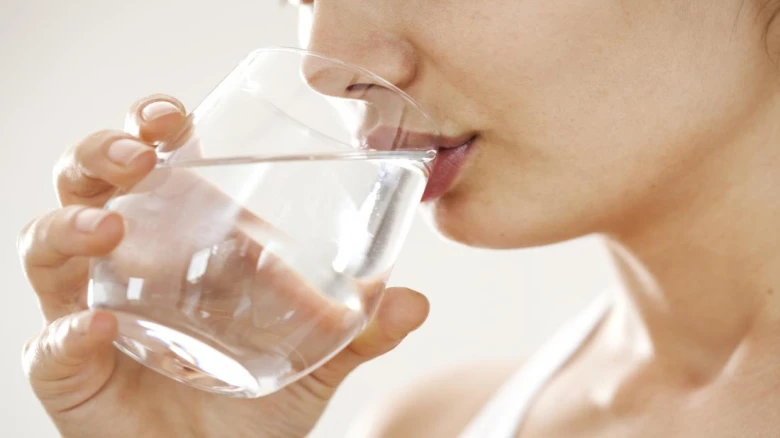Sufficient adequate water consumption is equivalent to 15.5 cups (3.7 litres) of fluids for men and 11.5 cups (2.7 litres) of fluids for women, according to the US National Academies of Sciences, Engineering, and Medicine.
Digital Desk: Recently, while perusing social media, came across a message suggesting that warm water is good for treating any skin condition and also makes skin glow. According to medical professionals, warm water is best for treating skin issues or bringing a natural shine to the face, according to the Instagram page Indian Veg Diet. In fact, your skin will begin to brighten and clear up in a few days. Does it genuinely assist, though?
While consulting professionals to get the specific solution we were looking for. Scroll down to find out what they said.
Drinking warm water causes perspiration, which is the body's natural way of expelling toxins, according to cosmetic dermatologist Dr. Jaishree Sharad, who spoke to this portal.
Warm water also relieves sinus congestion, which lessens eye puffiness or edoema. By improving nutrition absorption, lukewarm water also hastens digestion. And if the gut is clean, the skin stays clean as well, according to Dr. Sharad.
The expert did warn that aside from clearing nasal congestion and causing "a little more sweating which can also be gained by other techniques such as consuming steam or exercising accordingly," there is very little scientific proof of any direct benefits of drinking warm water to the skin. Warm water, however, is an undeniable aid in the body's natural detoxification process.
Dr. Rinky Kapoor, consultant dermatologist, cosmetic dermatologist, and dermato-surgeon, The Esthetic Clinics, told indianexpress.com that warm water hydrates the skin, prevents dryness and flakiness, and naturally moisturises the skin, which helps the skin to glow naturally.
Warm water consumption improves blood circulation in the body, Dr. Kapoor stated. According to her, "proper blood flow will ensure that sufficient nutrients are distributed to the skin cells, and that is how you will acquire healthy skin too."
How much is enough?
"If the gut is clean, the skin remains clean," continued Dr. Sharad. "The skin becomes dehydrated and loses its turgor when the body is dehydrated. As a result, it's crucial to consume two to three litres of water every day, unless you have particular renal or heart disorders that forbid you from doing so. The deeper skin cells do not supply water to the skin's upper layers. They obtain their water from the environment instead. Therefore, moisturising the skin is crucial in addition to drinking water, according to Dr. Sharad.
Sufficient adequate water consumption is equivalent to 15.5 cups (3.7 litres) of fluids for men and 11.5 cups (2.7 litres) of fluids for women, according to the US National Academies of Sciences, Engineering, and Medicine. "Climate, body weight, sex, and level of physical activity all affect how much water your body needs. Be careful not to drink too much water, since this might cause sodium levels to drop, which can cause hyponatremia (low sodium levels). Sodium helps control the quantity of water in and around cells.
Is consuming warm water sufficient?
The skin may not respond to water consumption alone. "A healthy diet must include colourful fruits and vegetables, leafy greens, little to no sugar, little to no sodium, no alcohol, and no smoking. Exercise and sufficient sleep should be combined with these, to Dr. Sharad said.

Leave A Comment